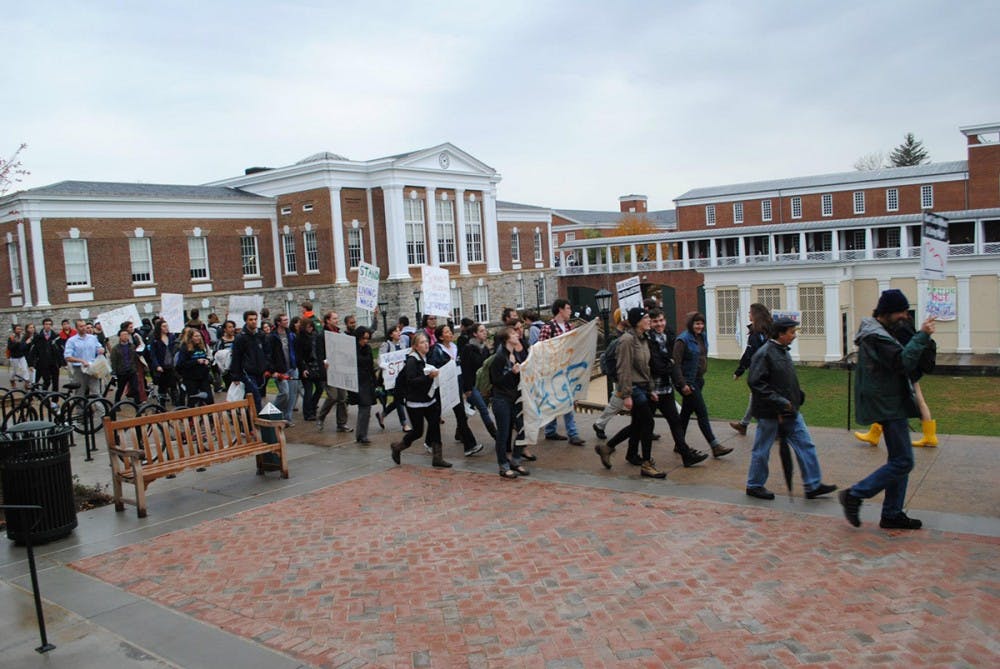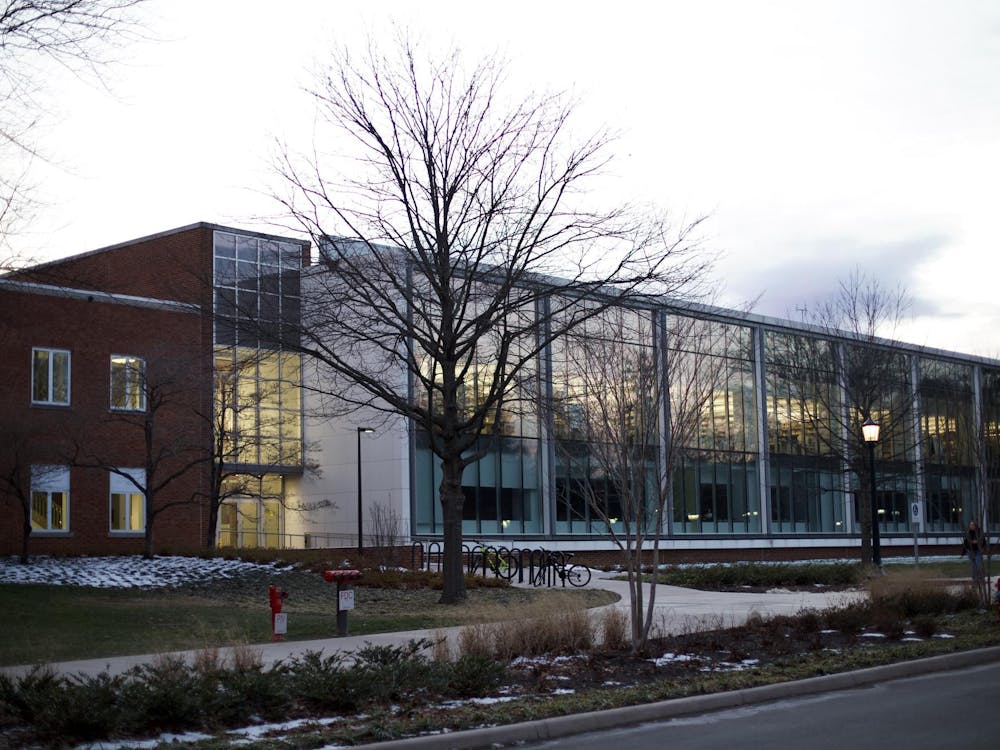Around the country, activists campaign for a living minimum wage of $15 per hour, but nowhere in Virginia is this movement more crucial than in Charlottesville. Charlottesville, as many students know, has a very expensive cost of living. The federal minimum wage of $7.25 per hour cannot support an individual residing in Charlottesville, let alone a family. The University, as the largest employer in the city, is in a unique position to provide needed relief to the residents of Charlottesville. The University must ensure a living starting minimum wage for its employees.
The fight for a living minimum wage for employees of the University is not a recent development — students have been demanding the University increase its minimum wage as far back as 1971. In 2010, the campaign took center stage at the University, as the Living Wage Campaign organized a rally attended by 300 Charlottesville residents to apply pressure to the University. The Living Wage Campaign never stopped pressing the administration for change, but former University President Teresa Sullivan refused to commit to concrete steps. In the intervening 8 years, the cost of living in Charlottesville has only risen. President Jim Ryan now has the opportunity to show bold leadership by correcting President Sullivan’s indifference and committing the University to a living minimum wage.
MIT estimates the current required annual salary, before taxes, for an individual to live in Charlottesville is $25,008; single parents need to make $56,347, and two adults working to support one child must earn a combined $59,950. If residents work 2,080 hours per year, 40 hours a week over 52 weeks (without time off), an individual would need to be paid at minimum $12.02 per hour, a single parent $27.09 per hour, and two parents supporting one child would need to earn at least $14.41 per hour. However, these numbers do not take into account unforeseen costs that may arise such as an unexpected illness that requires treatment. Furthermore, these numbers do not allow for saving any money they are estimates of the bare minimum required by typical families to scrape by.
The University currently has a minimum wage of $12.38 per hour. Thankfully, this covers an individual who lives alone, but this does not cover an employee who cares for a dependant or has an outstanding financial obligation. This fact was noted by Maurice Jones, a member of the Board of Visitors, who admitted that the University’s minimum wage is unlikely to be enough if a worker is the sole breadwinner for a household. This means that that the compensation the University provides is unlikely to be enough regardless of whether or not the employee is the sole breadwinner. Meaning that employment at the University cannot sustain either a single parent or a family with both parents working.
This is unacceptable at a University with a $3.55 billion operating budget for 2018-19. The workers who make our community run have a right to get paid a worthwhile salary. In 2012, the Living Wage Campaign estimated that it would cost the University $4.2-$5.8 dollars to provide a living minimum wage to all employees; even if that number were quadrupled to account for rising costs, which is highly unlikely, it would only represent 0.65 percent of the current operating budget. The fact is the University has more than enough money to compensate all workers fairly, they just choose not to.
In a Facebook post about two months ago President Ryan stated, “I know many of you are interested in the topic of the living wage here at UVA … We are working on this. Treating our employees and our contract workers well and fairly is a high priority for me.” That is an admirable statement; President Ryan should back it up in kind by committing the University to a $15 per hour minimum wage and the considering policies that would reduce the cost of living in Charlottesville.
An increase to $15 dollars per hour would allow families where both parents work to adequately provide for their child and save additional money. As for the single parent this increase, while not enough to cover all expenses, would be a movement in the right direction.
On Oct. 17th President Ryan announced the formation of a working group dedicated to improving the relationship between the University and the Charlottesville community. This working group intends to address issues such as housing, education, and wages. The new setting will provide a forum for discussion on these issues. However, in order to specifically address the needs of University employees, the committee should either create a subcommittee to focus on employees, or dedicate time for members to jointly discuss ways to reduce the cost of living for workers. The University must put its own house in order before starting broader initiatives.
The University must consider the needs of its lowest worker when making decisions about the future. In this instance President Ryan has the opportunity to correct a longstanding problem that President Sullivan did not properly address. The Board of Visitors finance committee has expressed a willingness to let President Ryan formulate a plan to fix this issue. I hope that for the sake of the University President Ryan takes bold action to ensure that every worker receives a fair wage for their hard work. The University must acknowledge the role it plays as Charlottesville’s largest employer and take action that is not only best for its bottom line but for the community as well.
Matthew Baker is a Viewpoint Writer for The Cavalier Daily. He can be reached at opinion@cavalierdaily.com.






